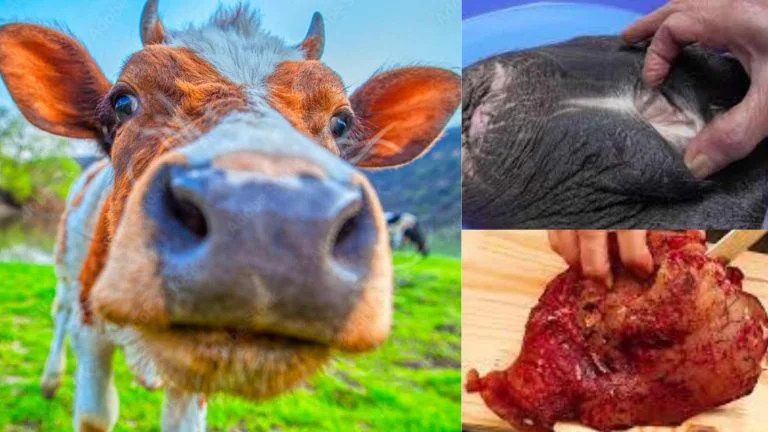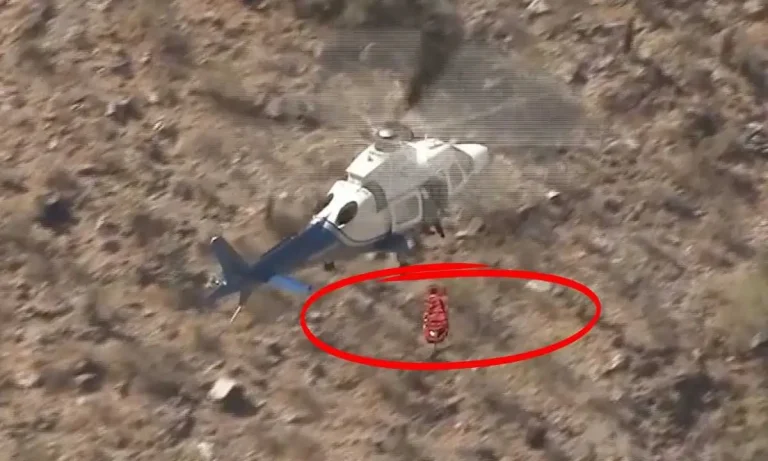Fake Fruits in American Stores Are Freaking People Out!
A recent video by @kiva_boddy on TikTok has sparked a lot of conversation and concern about fake fruits in American stores. In the video, which has gained over 1.4 million views, Kiva bought a watermelon from a local Seattle grocery store that looked and felt like rubber. Many viewers were shocked and worried, with one TikToker commenting, “I’m convinced the food in America is being swapped with prop food.”
But that’s not all. Many people from all over the country are sharing videos of fake and rubbery blueberries, bananas, and avocados they find in grocery stores. Let’s have a close look at all the reported incidents.
Rubbery Watermelons
On a sunny summer day, Kiva cut a watermelon for her family. Her children quickly brought it back, saying it tasted weird. When Kiva tried it herself, she noticed how difficult it was to cut and how unnatural it tasted. “It looks so good but tastes so bad,” she wrote in her caption, asking if anyone else had experienced a “bendable, rubbery watermelon.”
Discovery of Fake Blueberries in Toddler’s Snacks
Another alarming incident was reported by Aree Osbourne (@areeosbourne) in a TikTok video that has over 1.1 million views. Aree found what seemed to be a silicone blueberry in a package of organic blueberries from Whole Foods. She discovered it after her daughter finished a snack, and the disposal made a strange noise. “Why is there a rubber blueberry in my toddler’s snack?” Aree exclaimed, showing the shiny, rubbery blueberry to the camera.
Other Incidents of Suspected Fake Food
These aren’t the only reports of fake food. Consumers have shared stories of finding fake onions, bananas, and more. One parent noted, “My child has been pooping out WHOLE blueberries in the last week!” Others mentioned rubber-like bananas and watermelons that seemed surreal.
Back in 2011, the Los Angeles Times reported that some breakfast cereals and baked goods advertised as containing blueberries actually used fake blueberries made from sugar, corn syrup, and artificial dyes. Companies like Kellogg’s and General Mills were named in the report.
Public Speculation and Reactions
Kiva’s experience isn’t isolated. Many people on social media have shared similar stories, sparking various conspiracy theories. Some believe it’s a government plot to poison the population with plastic food, while others think it’s due to chemical fertilizers and pesticides used in farming. One user commented, “Why is my fyp full of people finding silicone fruit??? hello???” while another said, “Happy to be in Europe.”
To avoid these issues, people are suggesting buying from farmers’ markets, organic shops, or growing their own produce. “No fruit or vegetables have any smell now! I came from a generation who smelled every fruit and vegetable, but now nothing at all has a special smell,” another Instagram user noted
Theories and Possible Explanations
Government Conspiracy vs. Chemical Contamination
There are two main theories about these fake fruits: a government conspiracy to poison people or a side-effect of chemical fertilizers and pesticides. While the idea of a conspiracy sounds dramatic, chemical contamination seems more plausible. Experts suggest that excessive use of chemicals in farming could lead to such abnormalities.
Manufacturing and Supply Chain Issues
Another possible explanation is issues within the manufacturing and supply chain. Food industry experts note that mistakes in quality control and preservation processes can lead to fake or contaminated products reaching the shelves.
Shift Towards Organic Shops
These incidents have shaken consumer trust in supermarkets, leading many to seek alternatives. There’s a noticeable shift towards organic shops, farmers’ markets, and even home-growing fruits and vegetables.
Supermarket and Industry Reactions
Major supermarket chains are responding to these concerns. They are issuing statements to reassure consumers and are taking measures to improve quality control. Food safety authorities are also stepping in to ensure the authenticity and safety of food products.
Conclusion
The discovery of fake fruits in American stores has caused significant public concern. From Kiva’s rubbery watermelon to Aree’s silicone blueberry, these incidents highlight the need for better food safety and quality control. While it’s unclear if these are isolated incidents or part of a larger issue, staying informed and cautious can help us make better choices.
Also read,







